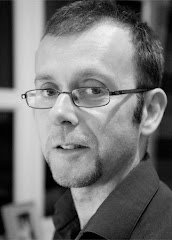From a psychological stand-point too things change. When I started karate at the age of 10 I was all youthful exuberance and a strict A to B mentality. Fight not going my way, fight harder. Technique not coming off - do more until it eventually gave in to me. Not getting the point from an instructor, listen but almost certainly think I know better and do it my way when he wasn't watching. This stage lasted well past my first dan grading (at 16) and into my 20's.
But then life slows you down. You begin to realise that not all things need to be met by brute force. You realise that one can change your approach to fighting to match and exceed an appoint, not by pure power necessarily but rather a more subtle implementation of power backed by experience. This second stage of training is matched by physical maturity and peak ability. Truly the journey along the path of marital arts is well underway. My personal experience is also that this second age/stage of martial arts training is also the point at which many of my contemporaries (myself included) graded to more senior Dan grades. An acknowledgement by our instructors that we had learned more than just the basics and were coming to realise something of the ethos of karate and perhaps, life in general.
My personal belief is that this second stage is as far as some students of the martial arts ever progress - yes they get older but they do not progress further in their journey. They begin to lose their physical ability without adding to their martial arts skills - older then is not necessarily wiser therefore. I was very much in this camp for a long time. At one point I briefly gave up martial arts (between 2006 and 2010) but when I came back I learned important lessons about humility and my own hubris that (I think) enabled me to move on to the third stage. Starting a new style of karate I trained with the same mindset I'd had as a second dan at my old club whilst I was a beginner in the new style. Session after session I trained in my old ways, listening to the Sensei but never quite getting it. In the end my body told me I'd have to listen, learn new ways to breath and move and hey presto I began to progress.
 |
| Sensei Phil (centre) with students circa 2014 |
I can remember staggering out of the dojo one time in late 2010, having done a mere 20 minutes of free form kumite with a variety of partners. So exhausted that I actually got changed out of my Gi and into my street clothes laying on my back on the floor (I am not exaggerating !) - this was the point I realised, once I had rehydrated and recovered my wits that I needed a new mindset - yes to use my legacy skills from another style of karate, yes to to build on what I had but also to think about how the new style might work for me and I it - this brought a new clarity and focus to both my training in the dojo but also my outside approach to things like running and research around the new style - reaching this third, more informed stage is about getting older. It is admitting to yourself that in your mid 40's you can't train like a teenager. Nor can you imagine that the world will bend to every technique you throw - fighting stops being a physical challenge and becomes a cerebral one. Chess writ across a blocking arm, whipping roundhouse and avoided sweep. That's not to say the physical challenge stops, as an instructor I am still obliged to lead from the front. Able to undertake all aspects of the training better than my students but able to rationalise and accept that I'm probably going to ache as much as they will the following morning.
Lastly this stage of my martial arts career is being able to admit that I may not be able to train in the way I do now in the future - I will need to back off at some point and consider other options. It is interesting to note looking in the mirror (seeing the grey hairs for example) that I'm now almost exactly the same age as my first instructor : Sensei Ben Warren was when I first started training under him in 1980. A bit of an eye opener as to the cyclical nature of both martial arts and life.
Sensei Phil Knight
Club Instructor
Leeds Premier Karate - Yeadon Dojo
www.yeadonkarate.weebly.com


